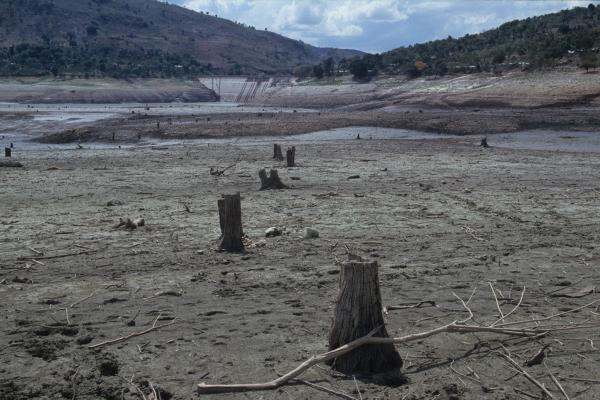The Colorado wildfires are raging this week. I’m in Denver, and the grey haze over the mountains in the distance gives me a sick feeling. Countless trees on hundreds of thousands of acres have gone up in smoke. Hundreds of homes have been destroyed. Even human lives have now been forever lost to the flames. It’s tragic, and it’s not over yet.
But here’s what I believe. One day, when these fires have been extinguished, this land will be restored. People will do whatever it takes to reforest these hills and rebuild their homes. In a few years, mountainsides that are charred and blackened today will be green again. We have the will and the resources to restore our environment when it has been destroyed.
Two weeks ago I was in Haiti. Unlike the deforestation that has happened in Colorado in a matter of days, Haiti’s 98-percent deforestation has happened over centuries. The destruction to Haiti’s natural environment is almost complete. Birds are rare. Small animals are almost gone. Fish that once teemed in the waters around the island are barely there.
It gets worse.
Without trees to purify and enhance the absorption of rainwater, the groundwater table has dropped so low that many wells don’t provide fresh water, but brackish. Routine thunderstorms result in massive flooding and soil erosion, washing topsoil out to sea, degrading soil quality for agriculture. Crop yield diminishes, so subsistence farms no longer can sustain a family. Extreme poverty then leads to some of the worst forms of societal ills, as desperate people resort to violence or have nothing left to sell but their bodies or their children.
Is there hope for Haiti? What will it take to deliver this land from its constant natural and economic disasters?
In my four years of involvement with Haiti, our Haitian ministry partners have diligently worked to proclaim the Good News, improve educational quality in our 59 schools, provide essential school lunches for 20,000 students, distribute thousands of water filters and hundreds of solar ovens, construct and repair church and school buildings after the earthquake, and do many other urgent and important things. But if together we do not address their environmental issues, their dependence on outside aid and overall quality of life can only go from bad to worse. We have to acknowledge the importance of the land. And what the land needs is trees.
I just traveled to Haiti with a team from Eden Reforestation Projects. Imagine four Americans and four Haitians sitting in lush shade—a rare pleasure in Haiti—dreaming about how our 20,000 school children can become part of the solution.
Here is our dream: We will begin by educating teachers, pastors, and university students about how wisely and well God has designed the natural world. Creation Care will then be taught to the children, not only as a theoretical subject, but with real “hands-in-the-dirt” learning experiences, where every child plants 25 seeds in tubes they will make from the millions of discarded plastic water bottles that litter the landscape. They will tend the seeds, transplant the seedlings, and protect them from grazing animals.
Meanwhile, Haiti Providence University will develop an agroforestry and reforestation curriculum on their new 200 acre campus, where work study students will manage the nursery. Eden Reforestation Projects will offer infrastructure guidance to make success possible.
The only hope for Haiti’s environmental future is Haitians themselves, grappling with the severity of the crisis and marshaling their own resources to change culture and reverse the decline.
At our meeting in the shade, one of the Haitian pastors pulled out a laptop and a wireless internet device, found the Eden website and watched as the ticker on total number of trees planted by Eden in Ethiopia and Madagascar roll over the 45 million mark. Every two seconds, three more trees! A broad smile broke across his face as he experienced, for the first time, hope. Hope for the future of the dry and thirsty land he calls home. Hope that his children and grandchildren might possibly witness the healing of the land. His hope gives me hope.
Linda Adams is Director of International Child Care Ministries (ICCM), the child sponsorship program of the Free Methodist Church. ICCM serves 20,000 children in 30 countries. She is also the proud mother of Sojourners’ Communications Manager.
Got something to say about what you're reading? We value your feedback!
